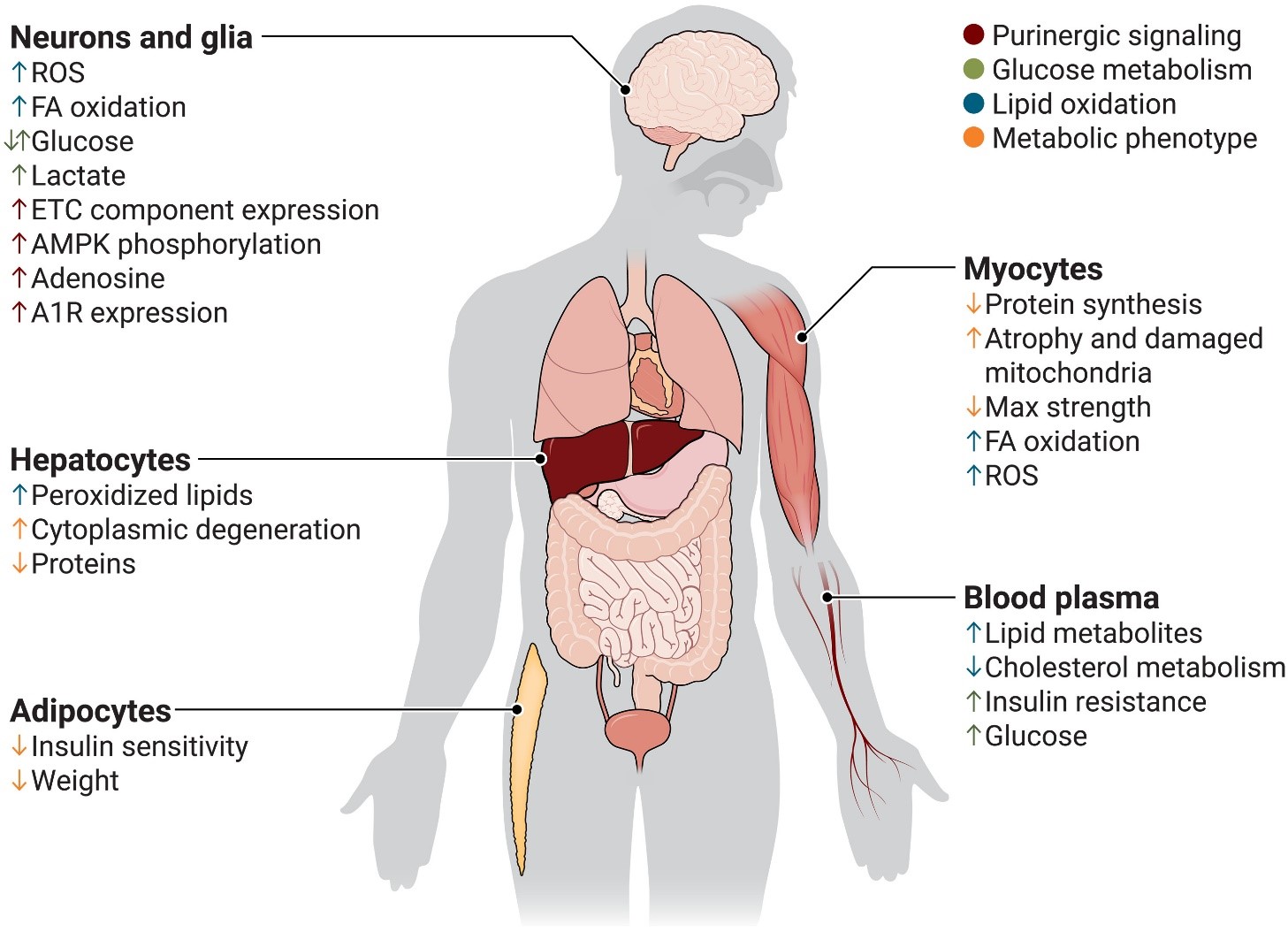Sleeping is not just about resting: it is about rebooting the body. It is the moment when our cells repair themselves, the brain cleans out toxins and memories are consolidated. But when this process fails, it is not just fatigue that sets in. A metabolic storm is triggered that damages the entire body, from the heart to the brain.
A recent scientific review published in Science Signaling makes it clear: sleep deprivation behaves like a metabolic disorder in itself.
The body goes into economy mode: what happens when we don’t sleep?
Losing a night’s sleep doesn’t just affect mood or performance the next day. At a cellular level, something much more profound happens: the body redirects energy towards functions essential for survival, leaving aside others such as memory or learning.
This breaks the body’s energy balance (homeostasis) and causes a metabolic domino effect:
- Poor glucose elimination
- Hormonal imbalance (hunger and satiety)
- Chronic inflammation
- Oxidative stress
All of this increases the risk of obesity, type 2 diabetes and cardiovascular disease.
A tired brain, a vulnerable brain
Poor sleep directly affects the brain. While we sleep, this organ ‘cleanses’ itself of toxins and organises memory. Lack of sleep alters this cleaning, hinders the creation of new synapses (neuronal connections) and favours processes similar to those of diseases such as Alzheimer’s or Parkinson’s.
In fact, many sleep disorders — such as apnea or REM insomnia — appear before neurodegenerative diseases manifest themselves. The metabolic deterioration observed after lack of sleep is surprisingly similar to that of these pathologies.
Missed sleep? Accumulated damage
The effects of insomnia are not compensated for by sleeping more on another day. The damage can be long-lasting and even irreversible. Human studies show that two nights of recovery do not completely restore the memory or brain connectivity affected by a single night without sleep.
Furthermore, the body does not eliminate the toxins accumulated due to lack of sleep properly, which increases the long-term risk of neurological and metabolic deterioration.
Sleep deprivation: a new metabolic risk factor?
The evidence is clear: lack of sleep should be understood as a metabolic trigger. When deprived of rest, the body goes into survival mode: it burns energy poorly, accumulates fat and unbalances essential processes. In the long term, this can lead to the development of obesity, type 2 diabetes and neurodegenerative diseases.
Getting a good night’s sleep is not a luxury, it is a physiological necessity that protects the metabolism and the mind.
Conclusions:
Sleep is essential for metabolic balance: sleep regulates energy, repairs cells and cleans brain toxins.
Insomnia alters the whole body, affecting everything from glucose elimination to memory formation.
Lack of sleep causes metabolic stress similar to that of diseases such as Alzheimer’s or Parkinson’s.
Sleep is not easily recovered: a single sleepless night can have lasting effects on memory and metabolism.
Insomnia acts as a trigger for obesity, diabetes and cardiovascular disease.
Science is beginning to see sleep deprivation as a metabolic disorder in itself.
Available at: DOI: 10.1126/scisignal.adp9358



